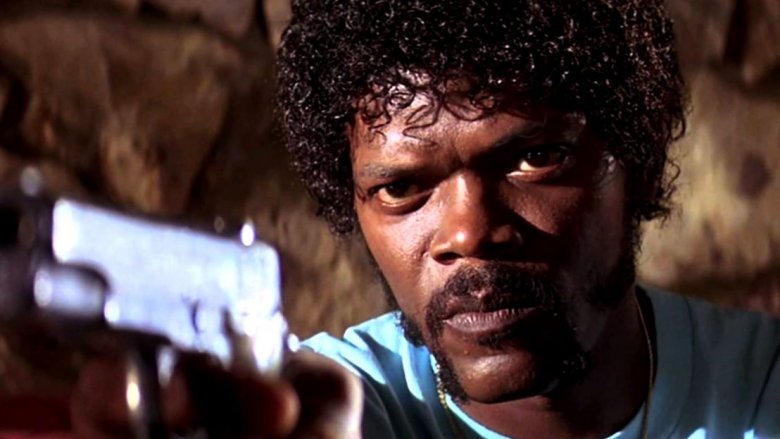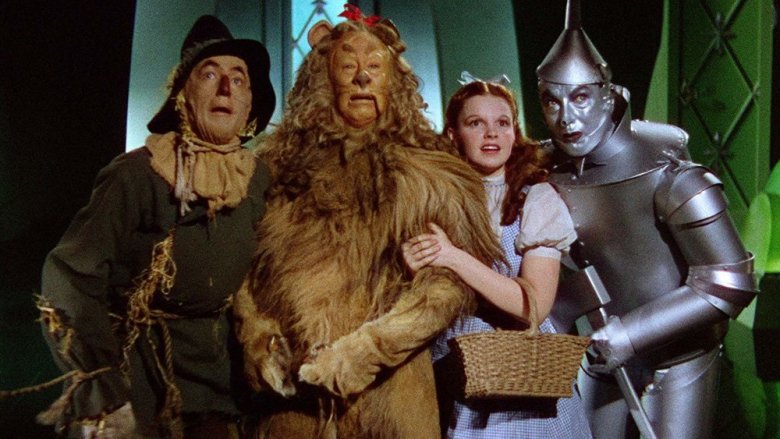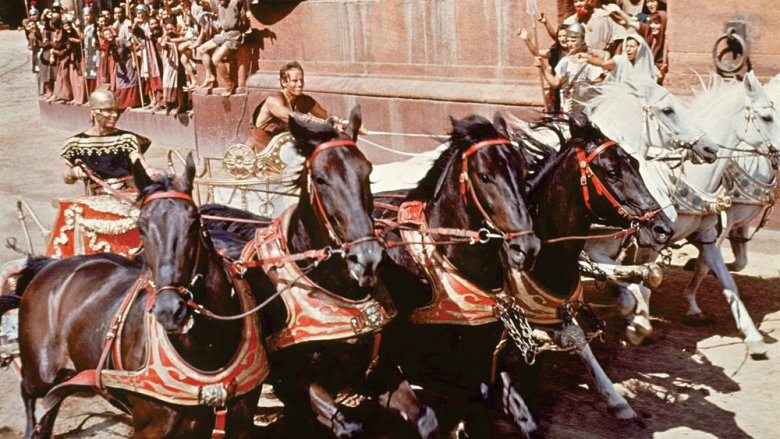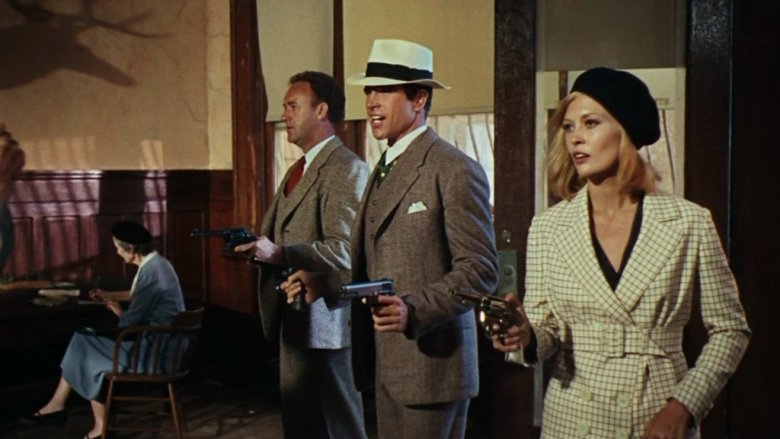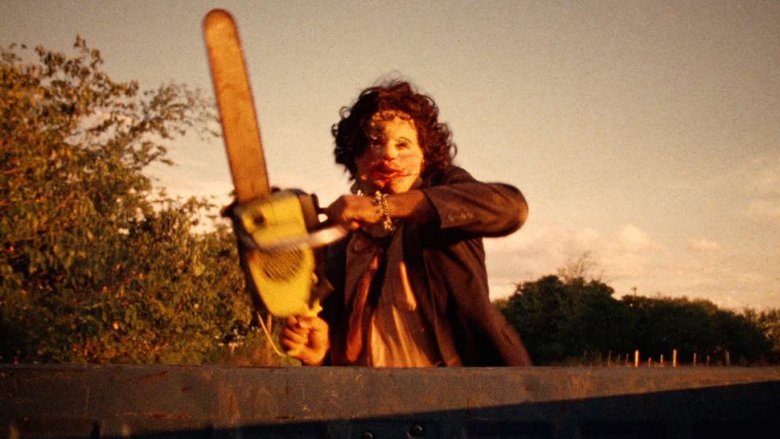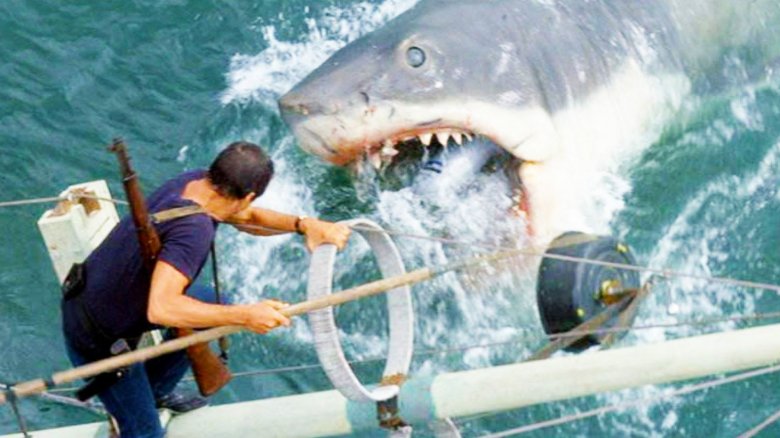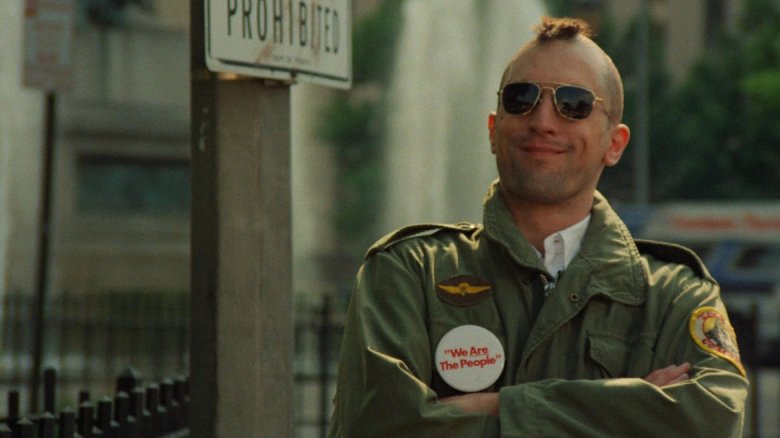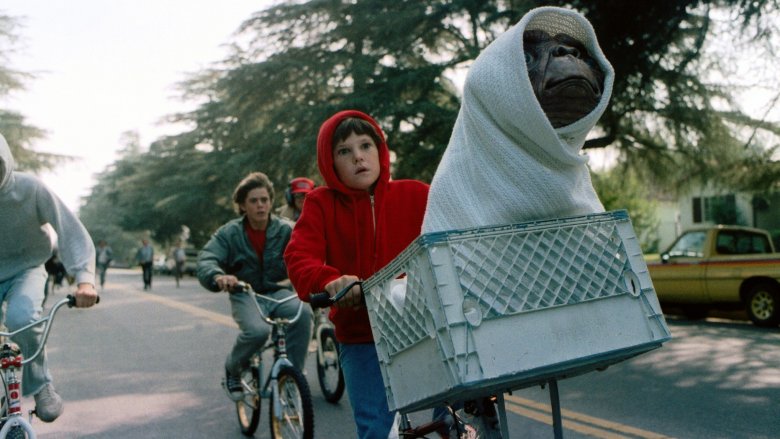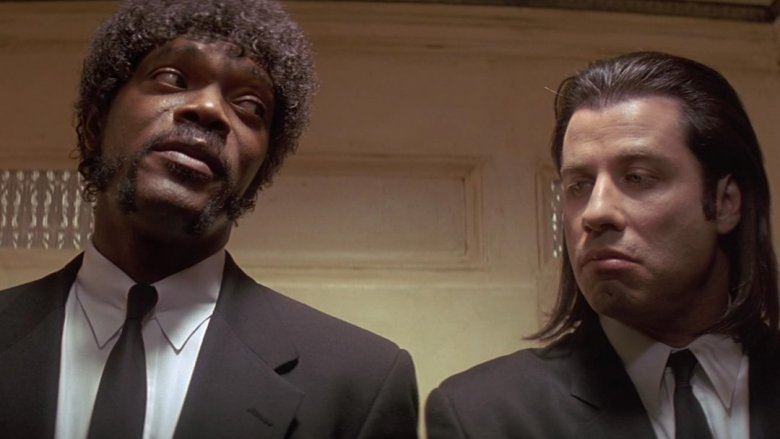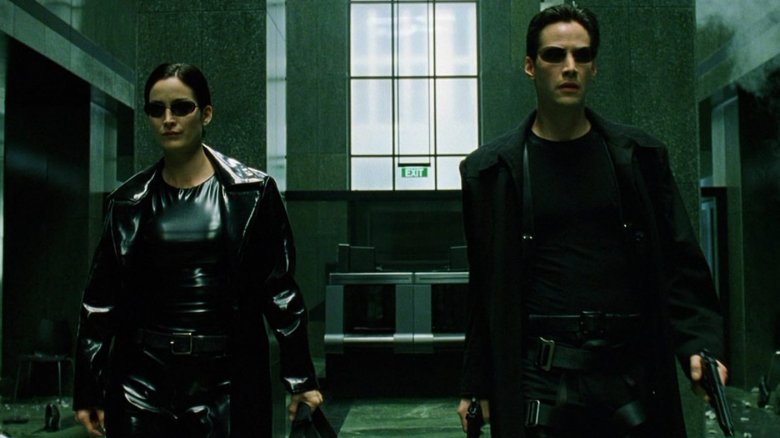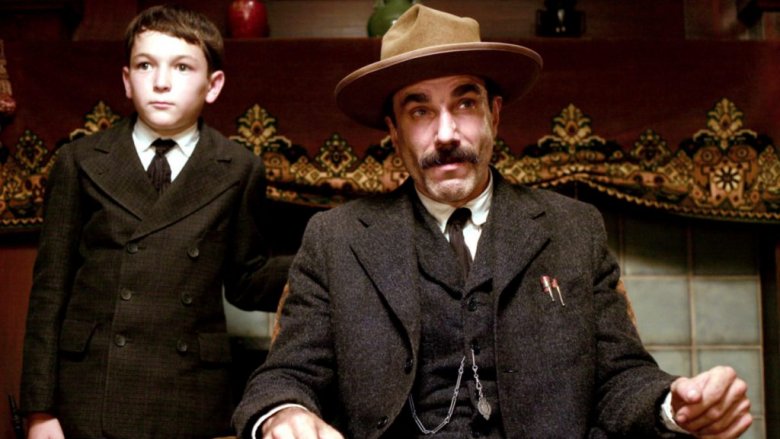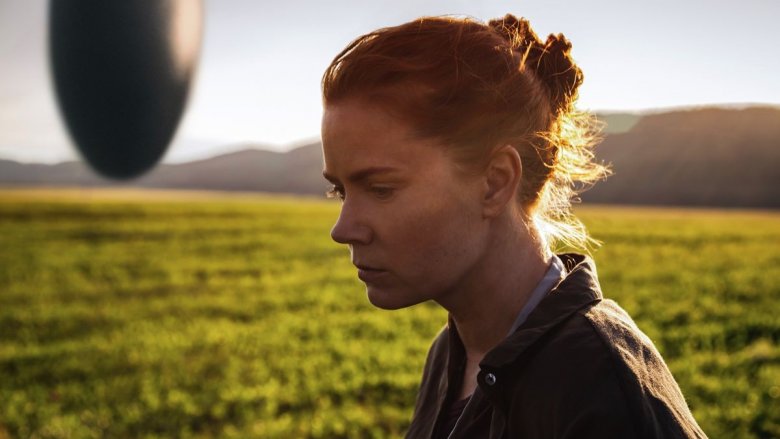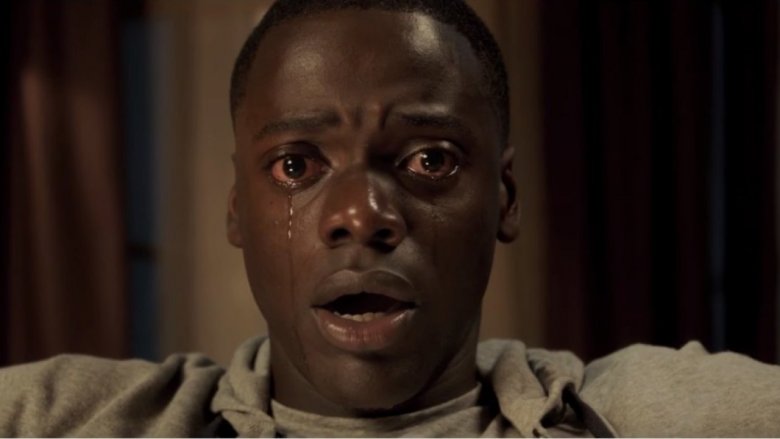The Greatest Years In Movie History
Ever since the early days of the Kinetoscope and nickelodeons, filmmakers have been pointing cameras at people and putting their stories up on a screen. And ever since the invention of film, people have been talking, debating, and arguing about movies. Most notably, one of the biggest questions among cinephiles is, "What's the best year in movie history?" Which year has contributed the most to pop culture and cinema? Which year has produced the strongest stories with the most compelling actors, rousing scores, and daring directors?
Well, certain years definitely stand out from the rest of the cinematic pack. These are the years that gave us iconic characters, memorable movie moments, and lines that everyone around the world can quote. These are the years that terrified audiences and tugged at our heart strings, sent us into hysterics and left us feeling inspired. From classic Hollywood to recent memory, these are the greatest years in movie history.
1939 was Hollywood's Golden Year
In 1939, World War II was just getting started in Europe, but the U.S. wasn't involved just yet. The country was coming out of the Great Depression, and Americans were spending their free time going to the movies. And man, there were so many great movies to see.
Historians call 1939 "Hollywood's Golden Year" and for good reason. It gave us The Wizard of Oz, with its ruby red slippers, Wicked Witch, and classic songs like "Somewhere Over the Rainbow." There was Gone with the Wind, a Civil War epic that's still the highest-grossing movie ever, adjusting for inflation. Jimmy Stewart delivered one of his best performances as a heroic senator in Mr. Smith Goes to Washington, Wuthering Heights turned Laurence Olivier into a legend, and Stagecoach gave us one of the biggest movie stars of all-time with John Wayne.
It was the year that Judy Garland sang and danced her way into our hearts and Ingrid Bergman made her American debut with Intermezzo. And we haven't even mentioned titles like Young Mr. Lincoln, Ninotchka, Only Angels Have Wings, The Hunchback of Notre Dame, and Goodbye Mr. Chips. There are 19 films from 1939 in the National Film Registry — more than any other single year — and eight decades later, everybody's still saying, "We're not in Kansas anymore." So, if you're still not convinced 1939 is Hollywood's Golden Year, then frankly, my dear, we don't give a damn.
Nobody's perfect... except for 1959
What makes 1959 stand out from the cinematic pack? Well, it gave us Some Like It Hot, a movie that both the AFI and BBC hail as the greatest comedy ever made. It features Marilyn Monroe's best performance, it broke barriers by dealing with gay themes and crossdressing, and it ends with an absolutely perfect line.
The year also gave us two of the greatest action scenes ever captured on camera: Cary Grant running from a killer crop duster in North by Northwest and the adrenaline-pumping chariot race in Ben-Hur. There was also Rio Bravo, a Western that Quentin Tarantino calls the best "hang-out" movie ever made. Disney released one of its most beautiful animated films, Sleeping Beauty, and John Cassavetes directed a little-known film called Shadows, which Roger Ebert dubbed one of the ten most influential films of the 20th century for its role in the birth of the indie film movement. Even the bad movies that came out that year were memorable, a la Ed Wood's amazingly awful Plan 9 from Outer Space.
Then there was The 400 Blows. Directed by Francois Truffaut, this film helped kickstart the French New Wave, a cinematic movement that changed filmmaking forever. It encouraged directors to put their authorial stamp on films (a.k.a. the auteur theory) and promoted the use of jump cuts, broken timelines, improv, and fourth-wall breaks. It made movies cool again and influenced everybody from Quentin Tarantino to Sofia Coppola to Wes Anderson.
1967 stuck it to the man
Up until the late '60s, movie moguls believed the key to making money was producing gigantic musicals and sword-and-sandals epics. But in 1967, younger audiences craved something edgier, and younger filmmakers were happy to oblige. This is the year we got Bonnie and Clyde, an incredibly cool movie that pushed the boundaries of on-screen violence. Then there's The Graduate, a film that turned the sexiness up to 11. But while Bonnie and Clyde was upping the violence and The Graduate was raising the sexual stakes, there were plenty of other movies taking Hollywood in a new, hip direction.
A Fistful of Dollars was the first internationally successful Spaghetti Western. It deconstructed a tired genre, reinvented Clint Eastwood's previously clean-cut image, and introduced the world to the genius of Sergio Leone and Ennio Morricone. Both The Dirty Dozen and Cool Hand Luke were subversive films that glorified anti-heroes and gave the middle finger to polite society. And then there was the slap heard 'round the world when Sidney Poitier backhanded a white dude in the murder mystery In the Heat of the Night. The scene sent shockwaves through Hollywood, and the movie won Best Picture at the Oscars, proving that 1967 was a year about breaking the rules and sticking it to the man.
Things got dark in 1974
By 1974, the studio system of old had completely collapsed. Desperate to attract younger viewers, Hollywood executives gave the keys to the kingdom to the Movie Brats, young directors fresh out of film school and ready to take over Tinseltown.
For example, Francis Ford Coppola kept his friends close and audiences closer with The Godfather: Part II. A whole host of up-and-coming legends made their theatrical debuts this year: Steven Spielberg with The Sugarland Express, Jonathan Demme with Caged Heat, Terrence Malick with Badlands, and John Carpenter with Dark Star. Martin Scorsese was building cred with Alice Doesn't Live Here Anymore, Brian de Palma was melting minds with Phantom of the Paradise, and as this was the height of the Watergate scandal, conspiracy thrillers were everywhere. There was Coppola's The Conversation, Alan J. Pakula's The Parallax View, and Roman Polanski's Chinatown, a neo-noir with a haunting score and razor-sharp script about crime and corruption.
The year was also amazing for comedy, as Mel Brooks cracked audiences up with Blazing Saddles and Young Frankenstein. But while some filmgoers were laughing, others were screaming in horror when Leatherface slashed his way into theaters. The Texas Chainsaw Massacre was an indie film that made stacks of bloodsoaked cash and helped create the slasher genre, along with that year's Black Christmas. Sure, Halloween took the slasher mainstream in '78, but these two films laid the gory groundwork.
We stayed away from the water in 1975
A lot of movie-lovers say the 1970s was the greatest decade for film, and 1975 supports their case. One Flew Over the Cuckoo's Nest became one of only three films to win the Big Five Oscars, and it deserved every single statuette, especially for the powerhouse performances from Jack Nicholson and Louise Fletcher. And anyone who's estimated the airspeed velocity of an unladen swallow or randomly shouted "Ni" has '75 to thank for Monty Python and the Holy Grail. Audiences were also treated to Robert Altman's Nashville, one of the most brilliant films ever made about the music industry and America's fractured identity. LGBTQ representation made some impressive strides with Dog Day Afternoon and The Rocky Horror Picture Show, and love it or hate it, it's impossible to deny that Stanley Kubrick's Barry Lyndon is a beautiful looking film.
However, 1975 is such a major milestone thanks to a big mechanical shark and a bearded director named Steven Spielberg. This was the year that Jaws scared audiences out of the water and into theaters. Walking the thin line between action and horror, Jaws became the highest-grossing movie of all-time (until Star Wars) and created the concept of the summer blockbuster. While some argue Jaws helped kill the creativity of the 1970s (and they're not exactly wrong), this killer fish flick is pretty much a perfect film and created a world where great action movies like Terminator 2, Jurassic Park, and The Avengers could dominate the silver screen.
1976 was talking to all of us
In 1976, an underdog named Sylvester Stallone punched his way onto the Hollywood scene with Rocky, an inspirational tale of romance and ringmanship that encouraged moviegoers to take their shot and fly high. The movie was a knock-out, both critically and commercially, but it was just one of a dozen instant classics that year. For example, there's Taxi Driver, a movie that's basically the anti-Rocky. All the anger, darkness, and paranoia of the '70s is rolled up into this one film, and the result is something primal, powerful, and lonely. It also gave us maybe the most quoted line ever improv'd: "Are you talking to me?"
Then there was Network, a devastating satire of TV news that was so spot-on with its predictions that it doesn't even feel like satire anymore. Thrillers like Assault on Precinct 13 and Marathon Man made us wonder if it was safe, and Hollywood grappled with the Watergate scandal in All the President's Men, a powerful film about the importance of journalism. The year was also a solid one for horror movies, as it gave us The Omen, a film that made everybody rethink parenthood, and Carrie, a melancholy masterpiece featuring a terrific and terrifying performance from Sissy Spacek. Toss in The Shootist, Logan's Run, The Bad News Bears, and The Outlaw Josey Wales, and you've got yourself a year that will live forever in Hollywood lore.
1982 had the best summer ever
For sci-fi fans and fantasy nerds, it doesn't get any better than the summer of 1982. Blade Runner introduced audiences to cyberpunk and wiped away some tears in rain. The Road Warrior was a high-octane action flick that created a dystopian wasteland of armored cars and leather-clad-desert dwellers. John Carpenter made us all reach for the barf bags with The Thing, an intense horror flick with mindblowing visual effects and a wonderfully ambiguous ending. And that same summer, Star Trek II: The Wrath of Khan took us back to the final frontier, Tron paved the way for CGI, and Poltergeist freaked everybody out with that creepy clown.
On top of all that, Don Bluth put Disney on notice with The Secret of NIMH, Arnold Schwarzenegger burst onto the scene with Conan the Barbarian, and Jim Henson built an elaborate world of monstrous, mythical Muppets in The Dark Crystal. Most importantly, Steven Spielberg directed E.T. the Extra-Terrestrial, his most personal (and successful) film and a heart-touching story about racking up the galaxy's biggest phone bill. But there was a lot more going on this year than just sci-fi and fantasy. There was Diner, Gandhi, and Das Boot. And don't make us decide between Tootsie, The Verdict, and Sophie's Choice. This was the year that Jason Voorhees got his hockey mask in Friday the 13th Part III, and we haven't even mentioned First Blood, 48 Hrs., and Fast Times at Ridgemont High. When it comes to classics we're still watching today, it's hard to top '82.
1994 was pulpy and perfect
Moviegoers couldn't go wrong in 1994. If they wanted comedy, Jim Carrey was on fire with The Mask, Dumb and Dumber, and Ace Ventura: Pet Detective. If they needed some action, there was Speed, The Crow, True Lies, and Leon: The Professional. And in the world of animation, audiences had no worries after watching The Lion King.
In the mood for a biopic? Tim Burton had you covered with Ed Wood. Looking for fantastical thrills? Peter Jackson was there with Heavenly Creatures. Oliver Stone was stirring up controversy with Natural Born Killers, and Kevin Smith was proving anyone could make a movie, regardless of budget, with his indie hit Clerks.
But if you want to see how special 1994 really was, look at the films nominated for Oscars. Forrest Gump won for Best Picture, and while that's a controversial choice, it's a movie we're all still quoting today. Then there was The Shawshank Redemption, a movie about the power of hope and one that perpetually sits atop IMDb's Top 250 list. There were also fantastic nominees like Quiz Show and Four Weddings and a Funeral, but most importantly, there was Pulp Fiction.
Directed by Quentin Tarantino, this gangster flick turned the cinematic world upside down. It pushed Samuel L. Jackson and Uma Thurman into the big time, reinvigorated John Travolta's career, and inspired countless imitators. Its ultra-violence, snappy dialogue, and non-linear timeline hit Hollywood like a bullet, and by the time it was over, nobody ever looked at a pocket watch the same way again.
1999 gave us multiple modern-day classics
It was 1999, the millennium was right around the corner, and something special was stirring in Hollywood. It was the year we all learned kung fu with Keanu Reeves and The Matrix revolutionized action cinema with bullet time, gun fu, and martial arts. Things were also exciting in the world of animation, as '99 treated us to Toy Story 2, Tarzan, and The Iron Giant. If you wanted to laugh, there were a whole lot of options, like Office Space, Election, and Galaxy Quest, the best Star Trek movie ever made. Plus, Spike Jonze was getting all meta with Being John Malkovich, a pitch black comedy that Malkovich, Malkovich, Malkovich.
It was also a huge year for horror. The Blair Witch Project took found footage mainstream and opened the door for the success of indie horror films. And then there was The Sixth Sense, a terrifying yet tender ghost story that gave us the greatest twist ending ever. Of course, M. Night Shyamalan wasn't the only one getting all twisty. David Fincher came swinging into theaters with Fight Club, a movie that aimed two brutal fists at masculinity and society. There was also American Beauty, Boys Don't Cry, and The Talented Mr. Ripley. We had Three Kings, Magnolia, The Insider, and Stanley Kubrick said farewell with Eyes Wide Shut. And while it's pretty divisive, Star Wars fans revisited that galaxy far, far away with The Phantom Menace. In other words, this was a really good way to close out the '90s.
2007 gave us serial killers, assassins, and milkshakes
They say they don't make 'em like they used to, but when it comes to movies, that just ain't so. For proof, take a look at 2007. That's when David Fincher explored the destructive power of obsession in Zodiac. The Coen brothers and Javier Bardem gave us one of the scariest movie villains in No Country for Old Men. And Paul Thomas Anderson and Daniel Day-Lewis created a true American masterpiece with the brooding and brutal There Will Be Blood.
The Bourne Ultimatum capped off an awesome trilogy and influenced an entire wave of action films with its gritty realism and shaky cam fight scenes. Casey Affleck had himself a banner year playing complex roles in Gone Baby Gone and The Assassination of Jesse James by the Coward Robert Ford. Across the pond, Edgar Wright directed Hot Fuzz, by far the funniest of the Three Flavors Cornetto trilogy. And love him or hate him, 2007 was the year Michael Bay unleashed Transformers upon the world.
This was also the same year that Brad Bird released Ratatouille, a film that made us fall in love with food. Juno made Ellen Page a household name and won an Oscar for its quirky and heartfelt script. Jonah Hill and Emma Stone burst onto the scene with Superbad, and we could keep on listing amazing movies like Atonement, Michael Clayton, Into the Wild and Eastern Promises. Of course, this was also the year we got a dancing Spider-Man, but hey, nothing's perfect.
2016 was a year of moonlight and musicals
Yeah, 2016 gave us bombs like Assassin's Creed and Suicide Squad, but if you look past the disappointing blockbusters, 2016 is a sneaky good year that stands alongside the more obvious greats.
It was an amazing year for female performances, with Isabelle Huppert in Elle, Sasha Lane in American Honey, Natalie Portman in Jackie, and of course, Amy Adams in Arrival. And while Disney was keeping things sweet with Zootopia and Pete's Dragon, there was evil lurking around the corner with The Witch, The Invitation, Green Room, and 10 Cloverfield Lane. And that's not even counting the double whammy of Korean horror flicks with The Wailing and Train to Busan.
On the superhero front, Marvel kept us enchanted with Doctor Strange and forced us to pick sides in Captain America: Civil War. On the smaller side of things, Casey Affleck gave a devastating performance in Manchester by the Sea, there was a tap-dancing Channing Tatum in Hail, Caesar!, and The Nice Guys was criminally underrated. There were weird little gems like The Lobster and Swiss Army Man, and let's not forget Silence, Hell or High Water, Hunt for the Wilderpeople, or hard-hitting documentaries like 13th, Weiner, and OJ: Made in America.
And then there are the two movies that dominated awards season: La La Land and Moonlight. One was a vibrant musical that paid homage to old-timey Hollywood. The other was a beautifully-shot drama about a gay black man trying to discover his identity. The movies famously dueled over the Best Picture Oscar, but while only one went home with the gold, both won over moviegoers around the globe.
2017 helped audiences escape the Sunken Place
We think it's safe to say that in 30 years or so, people will look back at 2017 as one of cinema's golden years. Future cinephiles will remember '17 as the year Pennywise crawled out of the sewers in It, Luke Skywalker got his groove back in The Last Jedi, and Caesar finally came home in War for the Planet of the Apes.
It will also be remembered as a stellar year for superheroes, as we said farewell to the Wolverine in Logan and said hello to three of the very best Marvel movies: Thor: Ragnarok, Spider-Man: Homecoming, and Guardians of the Galaxy Vol. 2. Most importantly, Diana Prince finally got her due in Wonder Woman, a comic book movie that finally put a female front and center. In addition to all these superheroes, 2017 was an incredible time for sci-fi and fantasy in general, as Blade Runner 2049 lived up to its 1982 predecessor, and The Shape of Water danced away with the Best Picture Oscar.
Need more proof that 2017 was amazing? Well, there was Phantom Thread and Lady Bird, Baby Driver and Dunkirk. Movies like The Florida Project, A Ghost Story, and Call Me By Your Name made us all weep. And of course, there was Good Time and Split, Raw and Personal Shopper. But the movie that left us reeling was Get Out. The perfect balance of scares and laughs, Jordan Peele's directorial debut gave us the unshakable image of the Sunken Place and showed that racism is way scarier than any slasher villain.
